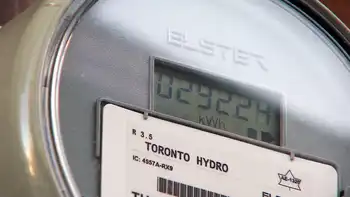Dispute May Result in Increased Costs in Connecticut
Bridgeport, CT -- - The region's new wholesale energy market system is being blamed for a contract dispute between Northeast Utilities' Connecticut Light & Power Co. and bankrupt energy supplier NRG Energy Inc. that could drive up costs for 1.1 million Connecticut customers.
The dispute will not affect customers of United Illuminating, which supplies power to most residents and businesses in Fairfield and New Haven counties. CL&P services 1.1 million Connecticut customers in 149 municipalities including Stamford and other parts of southwestern Fairfield County.
Attorney General Richard Blumenthal, the Department of Public Utility Control, CL&P and Independent System Operator New England all say the dispute will not affect the flow of power to Connecticut homes. However, DPUC spokeswoman Beryl Lyons said it is unclear what effect CL&P having to buy some of its electricity elsewhere might have on customers' bills.
CL&P spokesman Chris Riley said it was premature to discuss the impact on bills. NRG Inc. filed for Chapter 11 bankruptcy protection in New York on Wednesday and also notified CL&P that it would terminate its contract to supply 45 percent of CL&P's energy. NRG released a statement Thursday that said the bankruptcy action and the contractual matter were not linked and that the company plans to maintain its presence in Connecticut. NRG owns four power plants in Connecticut: in Norwalk, the Devon section of Milford, Montville and Middletown.
The company has halted construction of a new power plant in Meriden as a result of the bankruptcy. The contract dispute, according to NRG, arose as a result of CL&P withholding $34 million in payments to NRG over the last year. At the heart of the dispute, said Riley, is $15.5 million in new charges related to ISO New England's new wholesale market charges and the state's standard offer regulations. Ellen Foley, an ISO spokeswoman, said the issue was the contract between CL&P and NRG and how the companies addressed the standard offer within the context of the new market.
She said Massachusetts and Rhode Island both have standard offer regulations. "ISO has been conveying the potential impact of [the new market] for more than 18 months to prepare for the changeover," Foley said.
ISO activated its new wholesale market system, called Standard Market Design, on March 1. The system localized charges for transmission problems. CL&P was hit with the $15.5 million charge from its suppliers for transmission issues in the first month of the new market's implementation. Prior to the new market's activation, transmission costs were spread out over the entire New England region. ISO New England oversees the grid and wholesale market for New England. Energy prices in the state were frozen at 10 percent below 1996 rates by the Legislature as the government moved to deregulate the industry in 2000.
That rate freeze, however, will expire Dec. 31 unless the General Assembly extends it. Despite the rate freeze, the DPUC authorized CL&P to charge customers for those extra charges while CL&P discussed who was responsible for those charges with its suppliers, including NRG. Riley said CL&P is looking to secure another supplier. The company can also purchase energy from the wholesale market.
Related News

Ontario's five largest electricity providers join together to warn of holiday scams
TORONTO - Ontario’s five largest electricity utilities have come together to warn the public about ongoing scams concerning fake phone calls, texts and bills connected to the utility accounts.
“We always receive these reports of scams and it gets increasingly higher during the holidays when people are busy and enjoying the season," said Whitney Brhelle, spokesperson with Hydro One.
Hydro One joined with Alectra Utilities, Elexicon Energy, Hydro Ottawa and Toronto Hydro to get the message out that scammers are targeting customers and threatening to turn off their power.
Scams involve impersonation of a local utility or its employees, threatening phone calls, texts…




